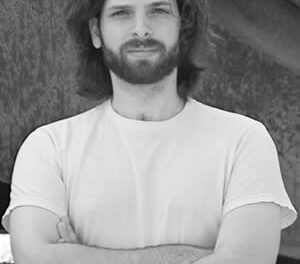The “First Sunday at St. Matthias” concerts have been a staple of Asheville’s musical fare for twenty years. The series relies upon the voluntary services of professional musicians and dedicated local amateurs. String quartets and other small chamber groups are the usual fare, but twice each year a full chamber orchestra is presented in concert.
It is hard to resist an afternoon in the acoustically inviting sanctuary of St. Matthias Episcopal Church for a program devoted entirely to Johann Sebastian Bach. Sunday’s program featured just two works: Orchestral Suite No. 1 in C (BWV 1066) and the cantata “Ich habe genug,” BWV 82. Stephen Klein led the 16-piece chamber orchestra, which was joined in the cantata by Bradley Williard, bass.
Bach’s four orchestral suites in the French style are not a coherent set, as are the Brandenburg Concerti. The suites (he called them “Ouvertures”) were composed and performed at different times in Bach’s career, and are grouped in the BWV numbering system only because of their similar compositional style, a dance suite with a long overture and French dance movements. Suite No. 1 has seven movements. First comes the extended Ouverture, then six dance movements: Courante, Gavotte I/II, Forlane, Menuet I/II, Bourrée I/II and Passepied I/II.
The concert began with an admirably precise attack on the downbeat of the Ouverture (three minutes early, at 2:57 p.m. by my watch). The details were well articulated. My criticism of this movement would be, that except for the woodwinds, each entry came in louder than the preceding one, and the movement became monotonously forte. It lacked dynamic variety except in the playing of the two oboes and one bassoon, who provided contrast in the passages where they were featured.
The dance movements were presented well, with the Gavotte showing nice contrasts and the Bourrée particularly nice phrasing. The final Passepiede was taken at an appropriate tempo, although that rapid tempo seemed to lead to occasional intonation problems by some strings. The string bass and harpsichord continuo was fine throughout the afternoon, I might add.
The cantata “Ich habe genug” was written in 1727, Bach’s fourth year at St. Thomas Church in Leipzig. He regarded this cantata, on the theology of death, as one of the most important among his over two hundred works in this form. St. Thomas Church heard it at least four times over his long stay there, in versions for bass voice and for soprano. Modern-day musicians share Bach’s high regard for this particular cantata; there are now available more than a hundred recordings. (Dietrich Fischer-Dieskau alone recorded it three times during his career.)
The title “Ich habe genug” can be translated several ways, and the program notes wisely suggested that “I have sufficiency” is probably preferable to the literal translation “I have enough.” The text presents the idea that the Savior has redeemed the world, making death not only acceptable but even desirable. The soloist is kept busy, with few instrumental passages. He has three arias and two intervening recitativos that are almost unrelenting in their fervency and intensity. Bradley Williard is an intelligent vocalist with a powerful voice. His lower range is very good, he uses baroque-appropriate narrow vibrato, and he has the vocal agility required for Bach. His upper range is not particularly beautiful, but he has a very good dramatic sense that he put to use.
In his third and final aria, which Bach wrote in an upbeat 3/8 time, Williard tells the listener “all’s well with the world” as he contemplates a “good Christian death.” It takes a good dramatic bass to look realistic, smiling as he embraces death. Williard convinced this listener.











